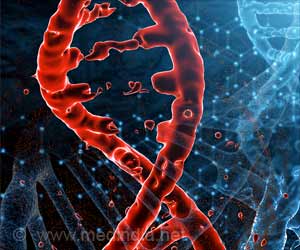Results of the phase I clinical trial of the investigational agent DMOT4039A has found the drug to be well tolerated in some patients.

"The deal is that the cell has to express the protein. The more it's expressed only on cancer cells, the more targeted the therapy becomes," says Colin Weekes, MD, PhD, CU Cancer Center investigator and assistant professor in the Division of Oncology at the CU School of Medicine.
A similar antibody-drug conjugate approach is used by the breast cancer agent T-DM1, which attaches chemotherapy to an antibody that seeks the HER2 protein in HER2+ breast cancers.
The current phase I clinical trial, sponsored by the agent's manufacturer, Genentech, was carried out at the University of Colorado Cancer Center, in the Netherlands, and at three Mayo Clinic locations in Scottsdale, Arizona, Jacksonville, Florida, and Rochester Minnesota. The study enrolled 71 patients, with no dose-limiting toxicities seen at maximum study dosage.
"For tumors that overexpress a specific protein ADCs may make sense," Weekes says. "But for other tumors with specific genetic abnormality that doesn't result in overexpression of a protein, it won't make sense."
Additionally, Weekes explains, the creation of antibody-drug conjugates requires technically sophisticated procedures to create "linker constructs" between drug and antibody.
Advertisement
But in tumors that overexpress certain proteins, or perhaps in tumors that can be made to overexpress certain proteins, the strategy of targeting cancers with antibody-drug conjugates remains promising. The agent DMOT4039A is now being evaluated for further human trials.
Advertisement
Source-Eurekalert














